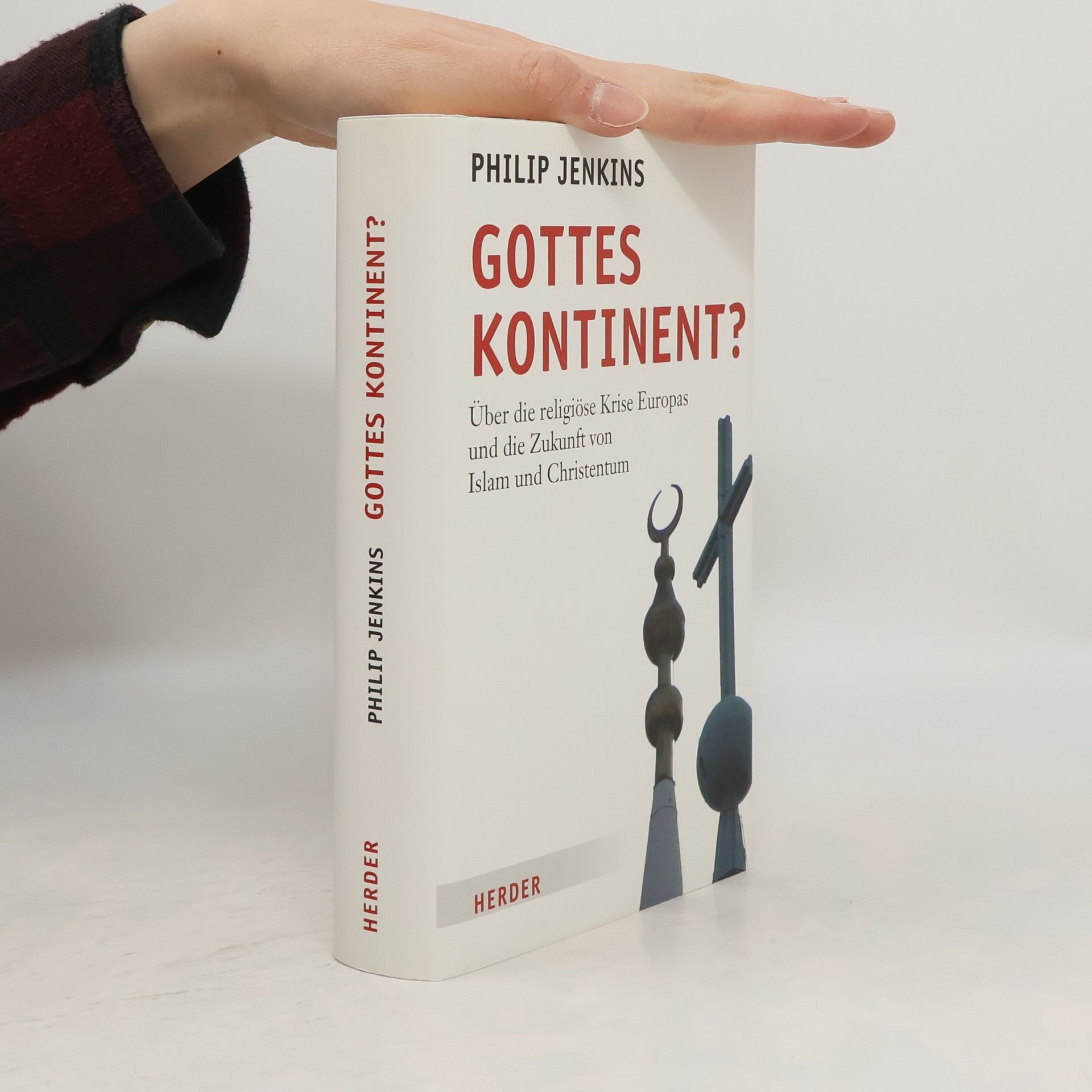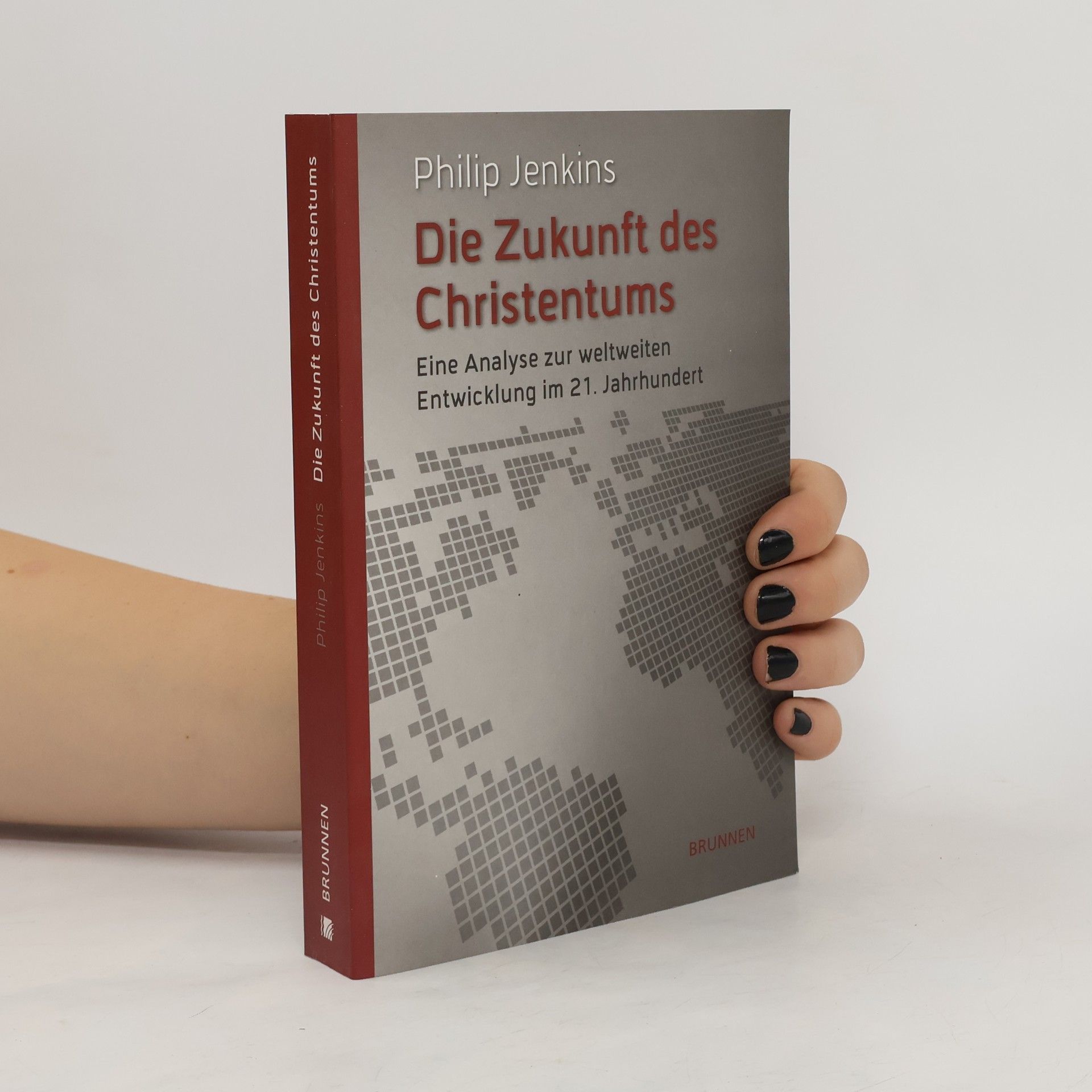In He Will Save You From the Deadly Pestilence, acclaimed religious scholar Philip Jenkins illustrates how the evolving uses of Psalm 91 allow us to map developing ideas about religion and the supernatural, theology and politics, medicine and mysticism.
Philip Jenkins Orden de los libros (cronológico)
John Philip Jenkins se ha consolidado como un destacado comentarista en asuntos religiosos, evolucionando desde su enfoque inicial en la historia británica de la modernidad temprana para explorar una amplia gama de temas contemporáneos. Su obra se caracteriza por una aguda perspicacia tanto en el pasado como en el presente de la religión, especialmente en un contexto global. Jenkins es reconocido por su estilo de escritura incisivo, a menudo descrito como claro y contenido, lo que permite a los lectores involucrarse profundamente con temas complejos. A través de una extensa investigación y su habilidad para presentar información intrincada de manera accesible, se ha convertido en una voz líder en el estudio de la religión.






Laying Down the Sword
- 320 páginas
- 12 horas de lectura
Exploring the complex themes of violence and sacrifice, this book offers a fresh perspective on the instances of bloodshed found in biblical texts. It delves into the historical and cultural contexts that shaped these narratives, aiming to uncover deeper meanings behind the violence. The author encourages readers to reconsider traditional interpretations and to engage with the moral and ethical implications of these stories, ultimately seeking a more compassionate understanding of the biblical message.
A Global History of the Cold War, 1945-1991
- 230 páginas
- 9 horas de lectura
This textbook provides a dynamic and concise overview of the Cold War. Offering balanced coverage of the whole era, it takes a firmly global approach, showing how at various times the focus of East-West rivalry shifted to new and surprising venues, from Laos to Katanga, from Nicaragua to Angola. Throughout, Jenkins emphasises intelligence, technology and religion, as well as highlighting themes that are relevant to the present day. A rich array of popular culture examples is used to demonstrate how the crisis was understood and perceived by mainstream audiences across the world, and the book includes three ‘snapshot’ chapters, which offer an overview of the state of play at pivotal moments in the conflict – 1946, 1968 and 1980 – in order to illuminate the inter-relationship between apparently discrete situations. This is an essential introduction for students studying Cold War, twentieth century or Global history.
"[The author] draws out the complex relationship between religion and climate change. He shows that the religious movements and ideas that emerge from climate shocks often last for many decades, and become a familiar part of the religious landscape, even though their origins in particular moments of crisis may be increasingly consigned to remote memory" -- From jacket flap.
Exploring the intersection of religion and warfare, this book delves into how faith influenced the First World War and contributed to its duration. Historian Philip Jenkins examines this era as a modern crusade, highlighting its profound impact on Western civilization and the lasting repercussions that followed throughout the twentieth century. This insightful analysis sheds light on the often-overlooked religious motivations and implications surrounding one of history's most significant conflicts.
Gottes Kontinent?
- 399 páginas
- 14 horas de lectura
God's Continent:Christianity, Islam, and Europe's Religious Crisis
- 352 páginas
- 13 horas de lectura
What does the future hold for European Christianity? Many predict its collapse under globalization, Western secularism, and a surge of Muslim immigrants, suggesting Europe may become "Eurabia." Philip Jenkins challenges these claims, offering a more nuanced view of Europe's religious landscape. He acknowledges existing tensions but argues that the narrative of a Muslim-dominated Europe is based on myths, such as the idea that Muslims are the sole new immigrants. In reality, Christians from Africa, Asia, and Eastern Europe are also entering Western countries, infusing European Christianity with vibrant faith. Jenkins recognizes that both Christianity and Islam face significant challenges in a secular culture, yet rather than diminishing, both faiths are adapting. While church attendance may be declining, signs of enduring Christian loyalty persist, evidenced by the popularity of pilgrimages that attract millions—more than during past "ages of faith." Jenkins provides a hopeful perspective on the resilience and transformation of European Christianity amidst change.
Next Christendom
- 346 páginas
- 13 horas de lectura
This new and substantially expanded edition of Philip Jenkins's influential book The Next Christendom tracks the remarkable expansion of Christianity in the global South, in Africa, Asia and Latin America, and the implications of that shift in numbers and influence away from the traditional Christian heartlands of Europe and North America.
Die Zukunft des Christentums. Eine Analyse zur weltweiten Entwicklung im 21. Jahrhundert
- 384 páginas
- 14 horas de lectura
Philip Jenkins beleuchtet den Wandel des Christentums, das sich von Europa nach Afrika, Asien und Lateinamerika verlagert. Er prognostiziert das Ende des westlich geprägten Christentums und beschreibt, wie neue Zentren der Christenheit in Städten wie Kinshasa und Buenos Aires entstehen. Eine umfassende Analyse der globalen Entwicklungen im Glauben.

